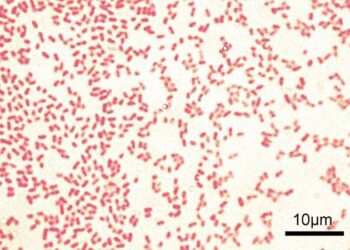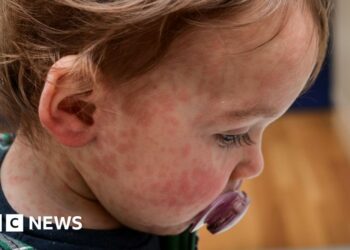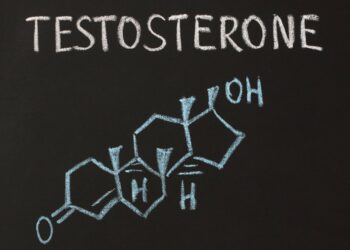Patients who have immune-related adverse events when treated for non–small cell lung cancer (NSCLC) may live longer than those without these complications, according to a new study.
In a retrospective cohort study that included more than 800 patients with NSCLC who underwent treatment with immune checkpoint inhibitors, patients who had immune-related adverse events lived a median of 14 months longer than did those without any immune-related adverse events.
“This is the largest contemporary clinical data set of patients with lung cancer to be delivered immunotherapy looking at this question,” study author Vishal Navani, MBBS, a medical oncologist at Alberta Health Services and assistant professor at the University of Calgary, told Medscape Medical News.
The study was published January 18 in JAMA Network Open.
‘Brimming Immune System’
Immunotherapy has become a promising treatment for lung cancer, which is the leading cause of cancer-related death. But often, the therapy causes toxic effects such as pneumonitis, dermatitis, colitis, and thyroiditis. Now, research has shown that these immune-related adverse events may be associated with improved survival.
Researchers have previously conducted similar studies of immune-related adverse events in other cancers treated with immunotherapy, including melanoma. In these cancers, patients with some immune toxicity also lived longer. “We’re getting more data supporting this hypothesis that if you’re younger, fitter, have less burden of disease, and normal blood work, you’re more likely to get immune side effects because you have a brimming immune system. It’s so activated by immune checkpoint inhibitor therapy, it’s more likely to lead to new toxicities,” said Navani. “For the majority of patients, that’s actually a good thing, as long as the toxicity is not very severe.”
The association may result from, for example, increased T-cell activity affecting both tumor cells and healthy tissue, accumulation of host autoantibodies, or increased inflammatory cytokines, the investigators wrote. However, the mechanism is still unclear and is not a focus of the observational study.
‘Goldilocks’ Side Effects
The investigators conducted a retrospective cohort study of patients in Alberta with NSCLC who received immune checkpoint inhibitors for at least 3 months between March 1, 2024 and November 30, 2021. Data were extracted from the Alberta Immunotherapy Database, a provincial multicenter cohort.
The researchers categorized the cohort by whether they had experienced a clinically meaningful adverse event, defined as one that caused the physician to delay or stop treatment or that required corticosteroids to manage. The investigators also excluded patients with grade 5 toxicity, the most severe class indicating death related to the complication.
The investigators chose not to include patients with poor prognosis, namely survival of less than 3 months. Typically, immune checkpoint inhibitors will not cause any immune-related adverse events until 3 months into treatment. Thus, the exclusion of these patients mitigated immortal time bias, which occurs when some participants of a cohort can’t experience a given outcome, such as toxicity, during a portion of the study period thus distorting the association.
The study population included 803 participants. Patients who had immune-related adverse events lived a median of 23.7 months past the start of treatment compared with 9.8 months in patients without any immune-related adverse events.
“It’s a bit like Goldilocks,” Navani said. Experiencing some immune-related side effects is associated with improved survival, but too much toxicity is life-threatening. So though patients with grade 1 and 2 toxicity lived longer than did those with no side effects, patients with severe toxicity did not.
Defining Adverse Events
Commenting on the study for Medscape Medical News, Pierre-Olivier Gaudreau, MD, PhD, a medical oncologist and hematologist at Queen’s University in Ontario , said that it provides an important confirmation of previous data with a large cohort. Gaudreau was not involved in the study.
Physiologically, the study results make sense, Gaudreau said. “Immunotherapy doesn’t really target the cancer cells themselves. It’s more of an indirect effect.” The therapy will “reactivate the antitumor response that the immune cells previously had, but you may also trigger additional proinflammatory symptoms that lead to these side effects,” he said.
However, the study does not show any causality. “There’s no way in a retrospective study like this to untangle this chicken-vs-egg type of dilemma. You’re going to get this association, but you’re never going to be able to figure out what comes first,” said Gaudreau.
He added that with immune-related adverse events, “the definition of what you’re studying is important.” The researchers’ choice to omit patients with a survival of less than 3 months, for example, addresses an important confounder, but it also may omit data from those who had side effects earlier in treatment, said Gaudreau. “If you do not include patients that have the poorest prognosis, you eliminate immortal time bias. But by making this choice, you’re also creating other limitations.”
Gaudreau would like to see more preclinical trials to help determine possible mechanisms for the association. Navani hopes for a larger, international collaboration to improve the generalizability of the Alberta-based study.
Funding for the study was not reported. Navani reported receiving personal fees from Pfizer, AstraZeneca, Ipsen, Janssen Pharmaceuticals, and Novotech and nonfinancial support from Sanofi and EMD Serono outside the submitted work. Gaudreau reported no relevant financial relationships.
Gwendolyn Rak is a health reporter for Medscape based in Brooklyn, New York.
Source link : https://www.medscape.com/viewarticle/immune-related-adverse-events-linked-longer-survival-2024a100023v?src=rss
Author :
Publish date : 2024-01-30 18:54:17
Copyright for syndicated content belongs to the linked Source.





